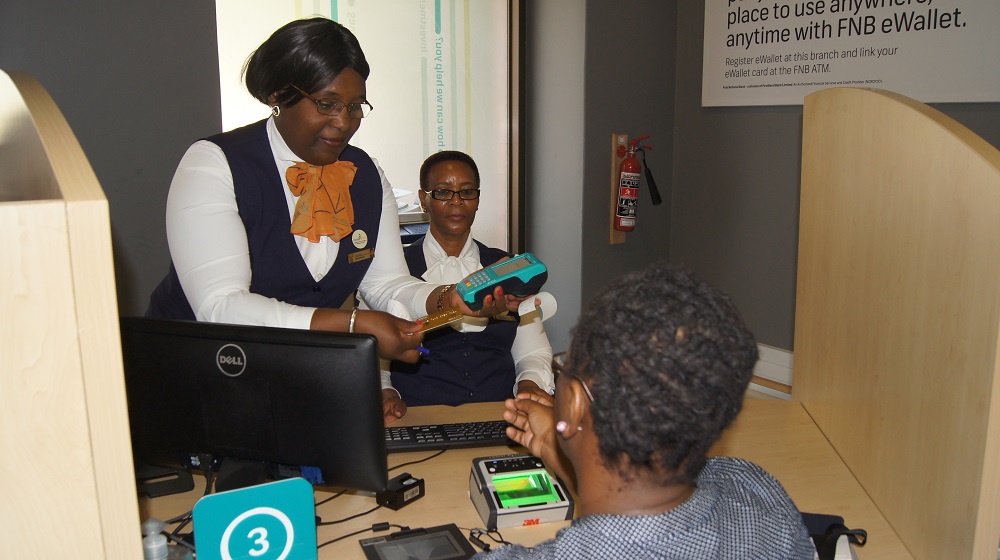If South Africa is to progress towards a more streamlined, simple and less corrupt system for citizens to pay for public services, government needs to seriously consider going digital with mobile money, mobile experts say.
In an interview with htxt.africa, Imdad Aslam, interim CEO of Pakistani small business finance organisation Karandaaz said any country, like South Africa, with a large number of its population living just below the poverty line, cannot afford to ignore the topic of digitised payments for all citizens.
Aslam was among a panel discussion held during the GSMA Mobile 360 Conference in Cape Town. The panel looked at the topic of digitising payments in developing markets was discussed during a panel discussion on its benefits
“The main question isn’t about whether or not we can replicate this kind of success in other African markets, it’s when will it happen. Public and private partnerships are never easy, hut the value driven out is high,” Aslam mentioned during the discussion.
“There are many benefits to it. It saves government a lot of costs, it’s very convenient to the end user and it tackles corruption. Plugging the leaks which lead to corruption is key and the only way to do that is to digitise,” Aslam explained to htxt.africa.
According to Aslam, the technical aspect of implementing is the easy part, the difficulty comes in getting people within state structures who will actively adopt such techniques to eliminate corruption.
“If you have one guy in your government, who is willing to change the landscape and he is honest, you can achieve it,” he adds.
The panel, which included GSMA’a Clair Scharwatt and Orange Money’s Alban Luherne, also looked at an example of successful implementation of digitised payments with a case study presentation of how it’s been successfully implemented in state schools in the Ivory Coast.
In 2011, the Ivorian government made a commitment to digitise school registration payments at state high schools around the country by partnering with mobile networks to process digital payments.
With the help of the Bill and Melinda Gates Foundation, Omidyar Network and the MasterCard Foundation, the system has now become mandatory, reaching 1 500 high schools. In 2014 alone, 1.5 million school registration payments were made (accounting for 99% of all high schools in the country), with 94% being conducted via mobile money.
For mobile networks in the western African country, this has helped increase customer adoption and opened up a new revenue stream.
Ivory Coast’s government has been able to remove cash handling costs, security costs and the load on administrative departments and reduce the leakage of funds while increasing transparency. Furthermore, schools and parents have benefited from the reduced amount of time it takes to pay and process registration, improved security, better school budget management and a better user experience.
But with South Africa being among the top African countries in tech with the lowest mobile money penetration rate, how can the government make that work? What other avenues should they be looking at in taking this direction?
“I think the biggest problem the South African market has had compared to other countries is that it hasn’t picked one user functionality and focused on that. I’m a firm believer that you need to learn how to walk first before you can run. South African stakeholders should take one or two use cases that are important to your market,” Aslam said.
“This country is a very advanced banking market, yet it doesn’t reach a majority of the population. But the fact of the matter is that when it comes to money, people trust banks, even if they don’t have a bank account, more than they would a mobile operator,” Aslam says.
Aslam suggests that there either needs to be a lot more consolidation between financial institutions, governments and mobile money operators in South Africa or a bank-led model must to come into the space.
“Banks make so much money providing conventional services, that for them to go the mobile money route, putting in the effort to get that to work is going to be very difficult. It’s like a chicken an egg thing, telecoms and governments need to up their game in terms of collaboration with financial institutions like Visa and MasterCard to give them the credibility they need to showcase solutions to the end user,” said Aslam.
An example of a digital payment collaboration between the state and banks is the Department of Home Affairs unveiling of ID and passport centres at Standard Bank and FNB in September. All payments for the in-bank process are made via debit/card only, no cash is exchanged between government officials and citizens.
The department had said that this was in line with its long term goal to make the system go completely digital.
This could be a precursor for national government to adopt the same strategy, but for now we can only speculate on whether or not that will become one of its main focuses in the near future.

